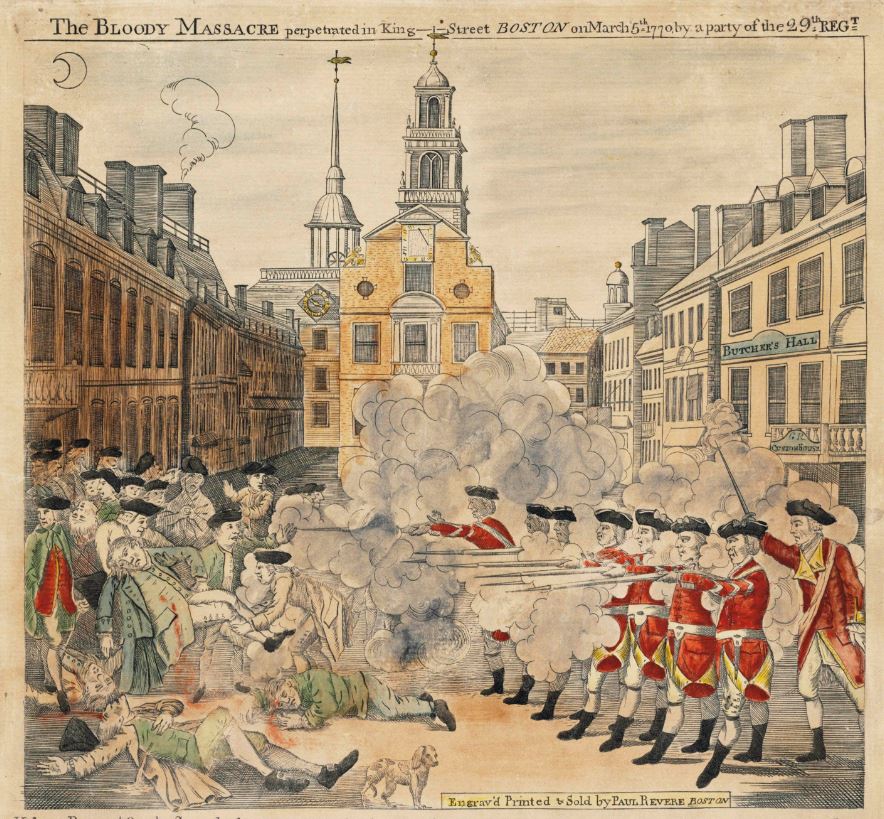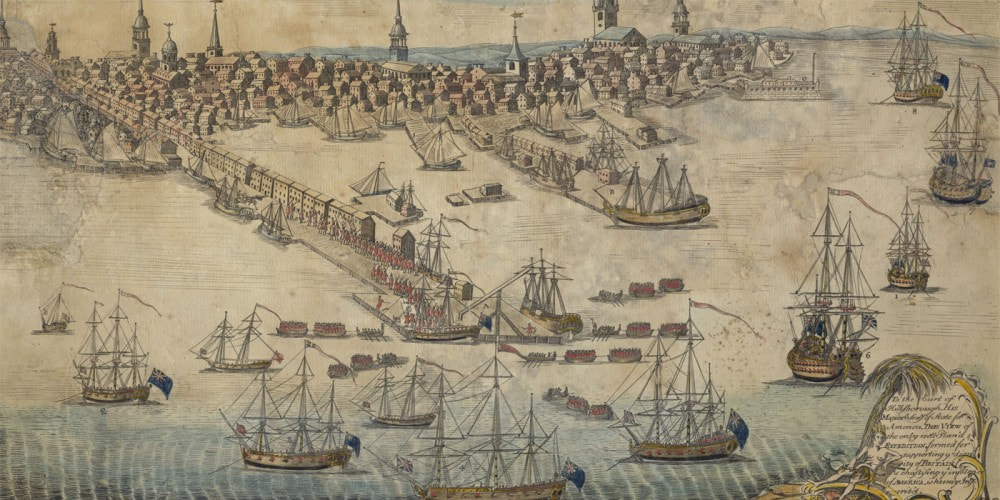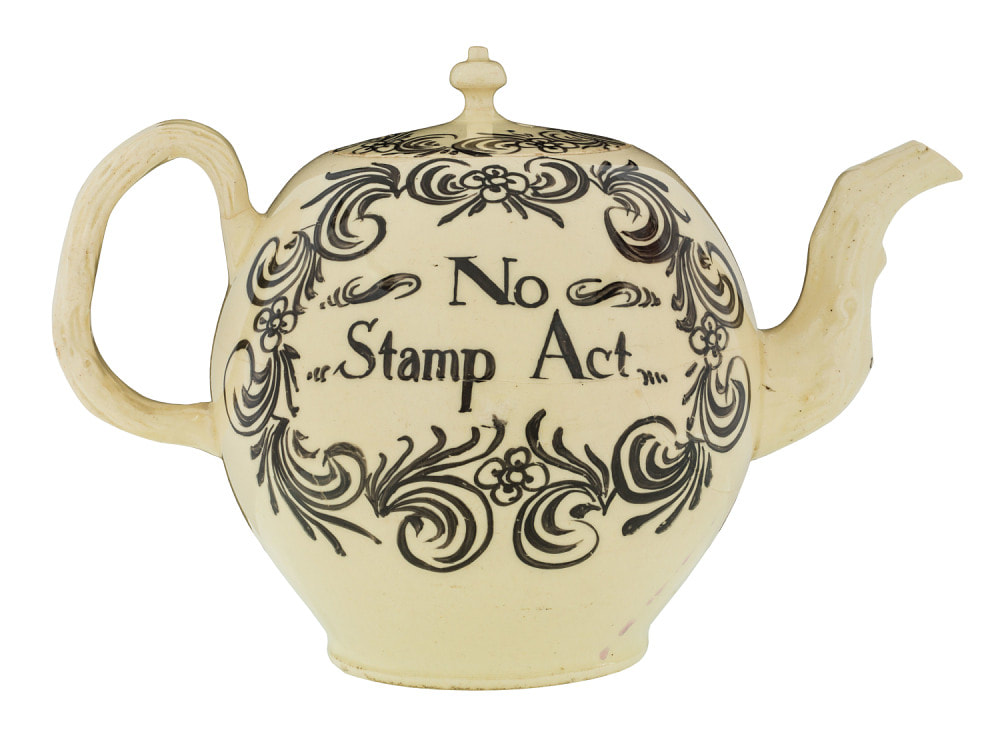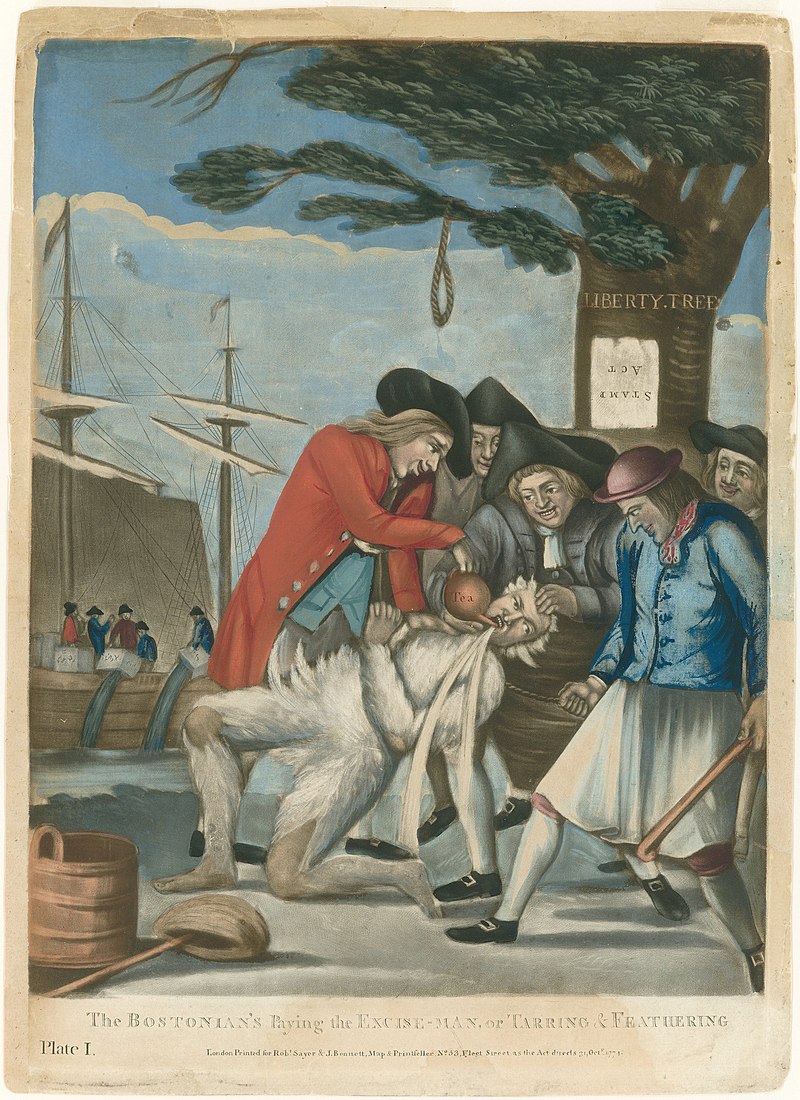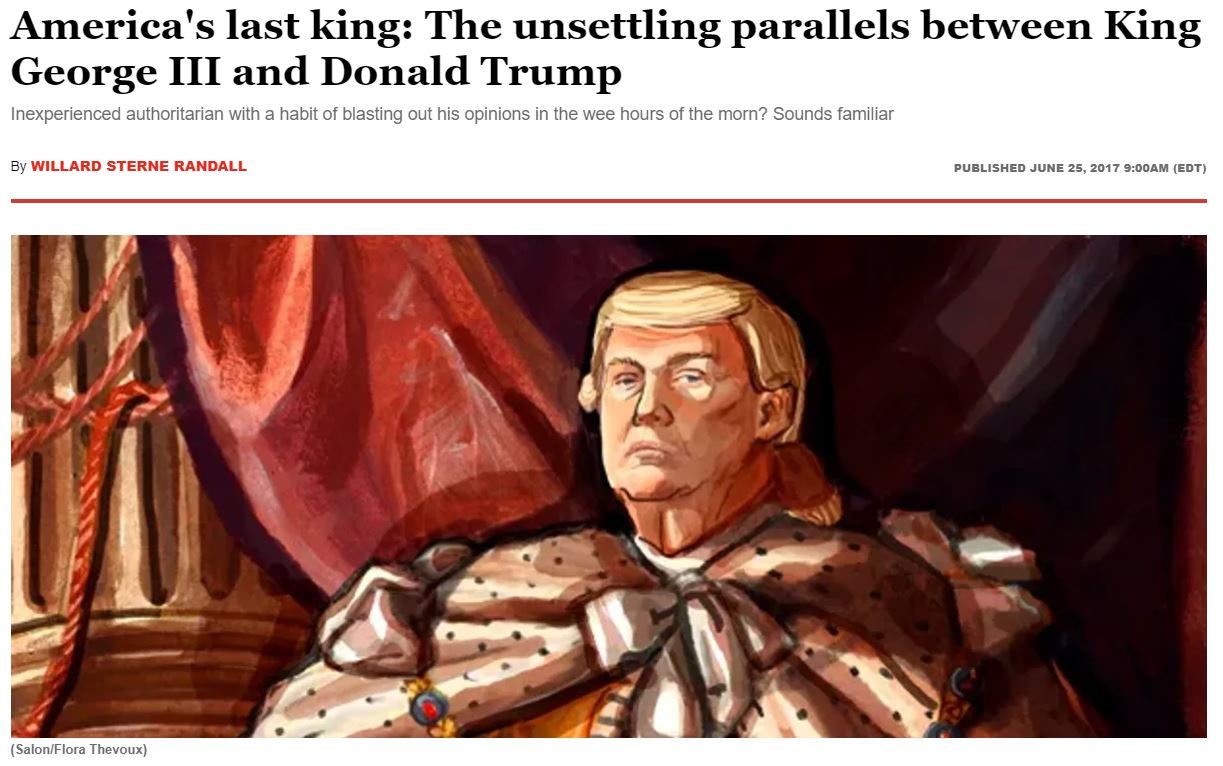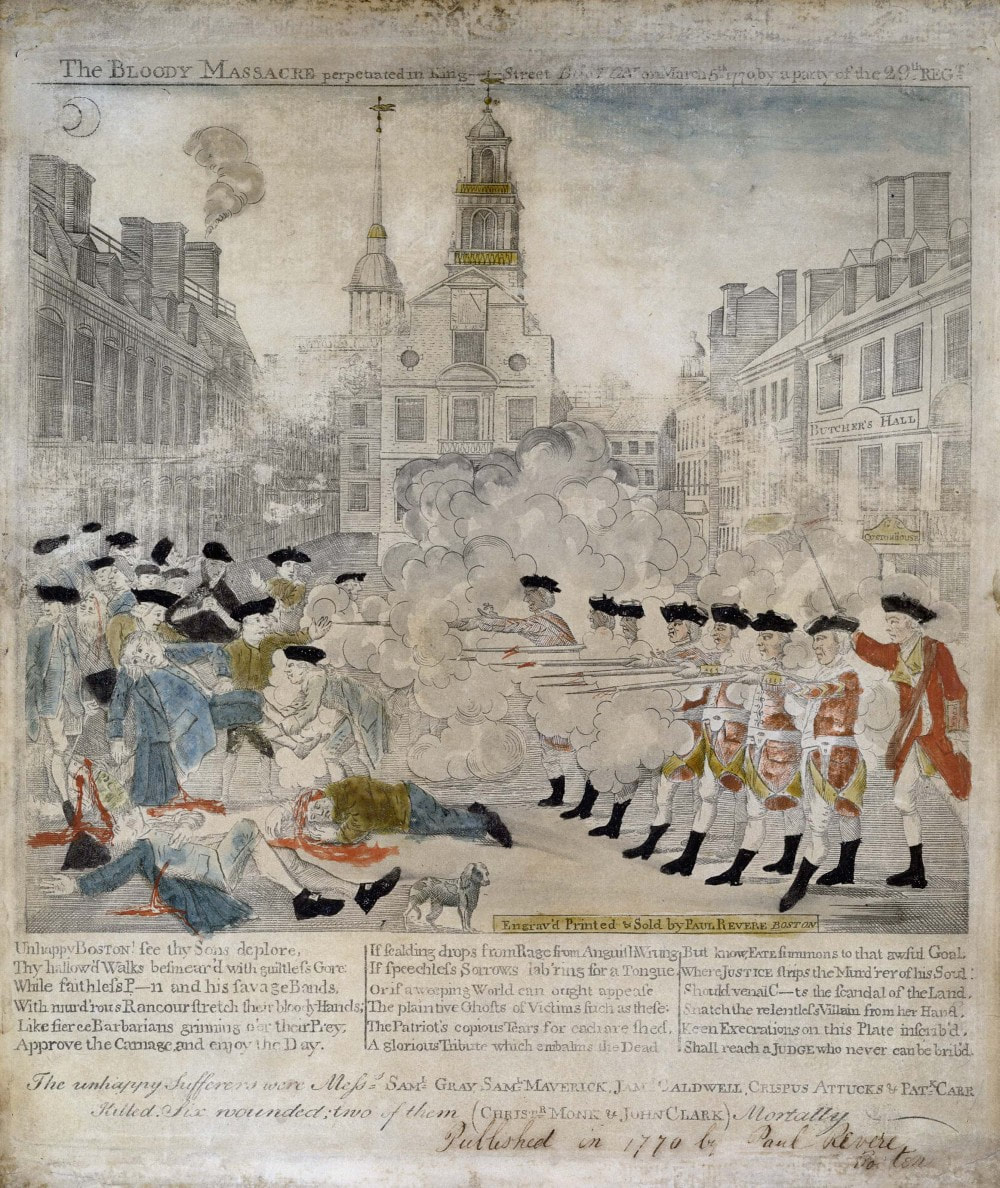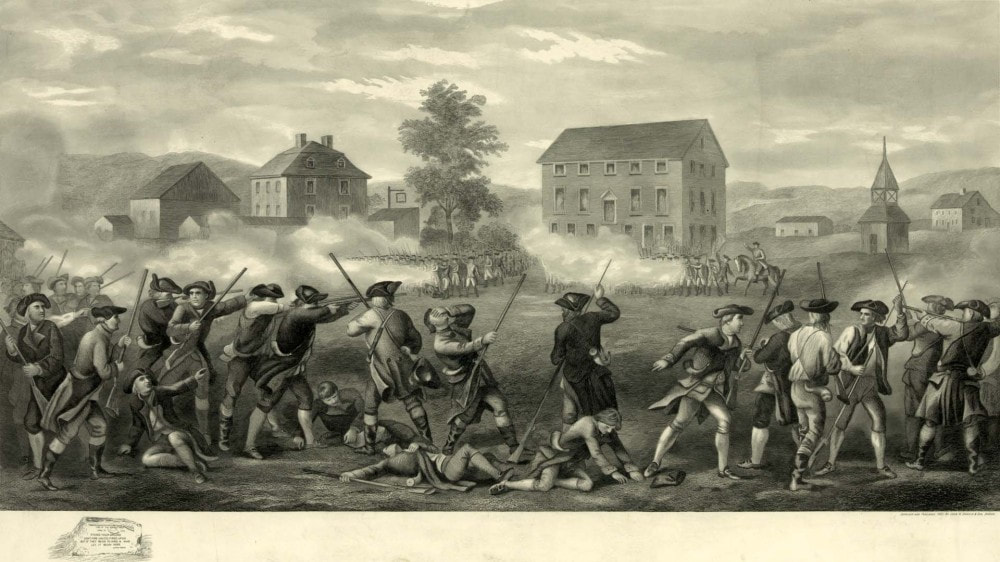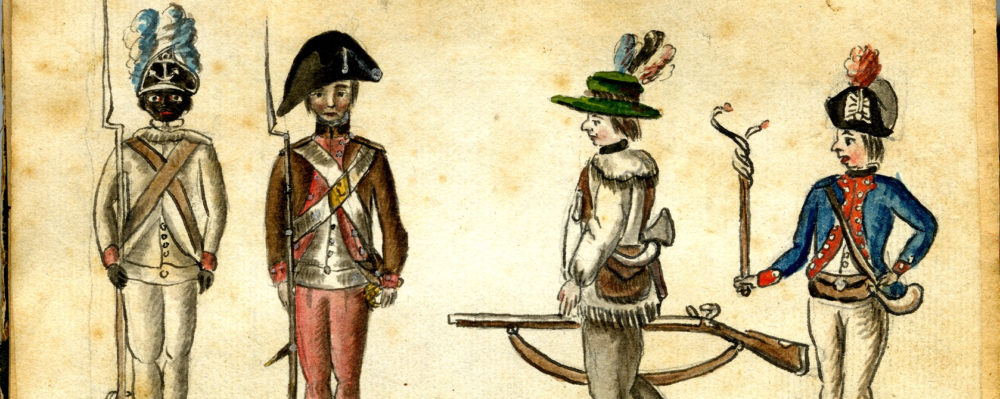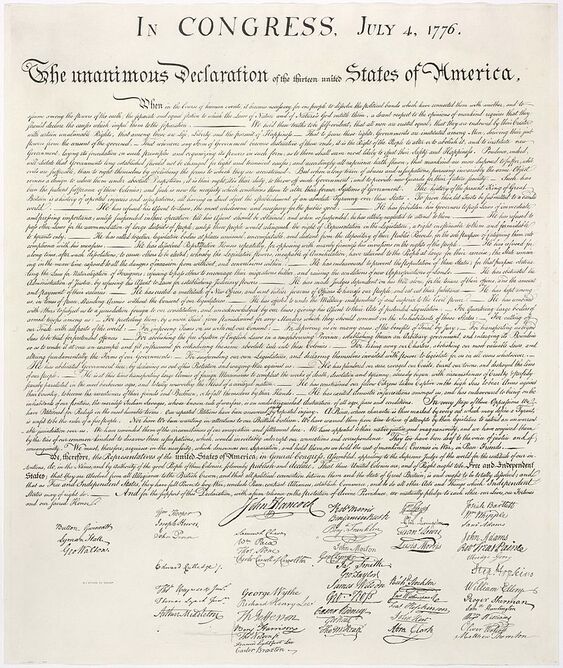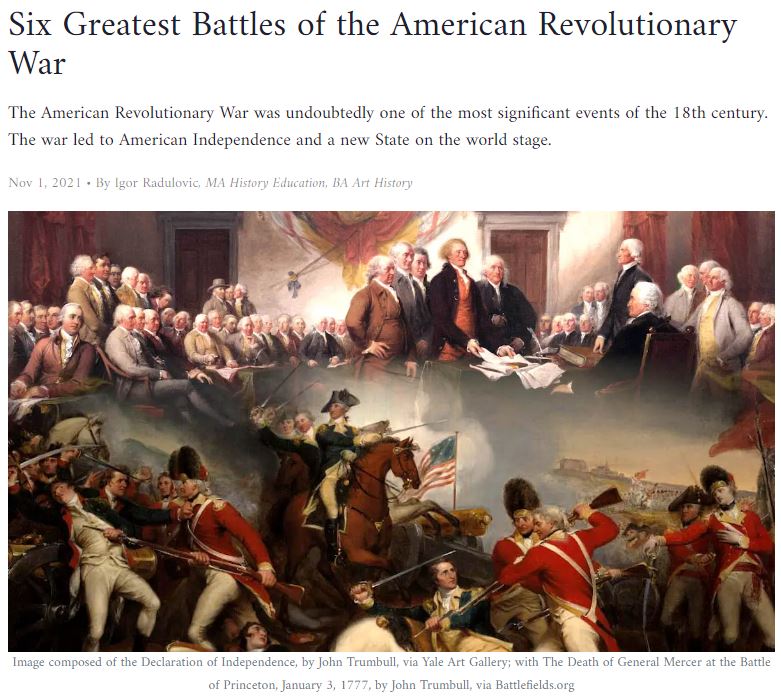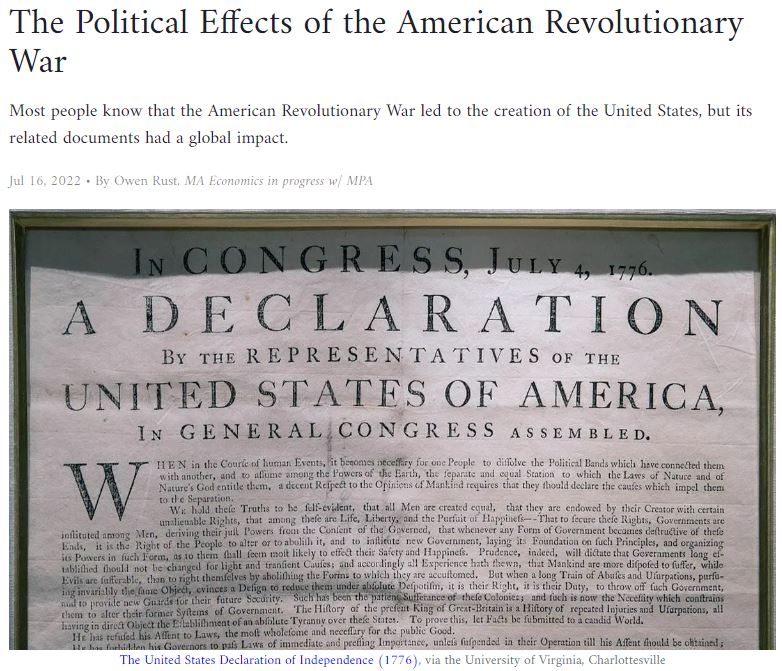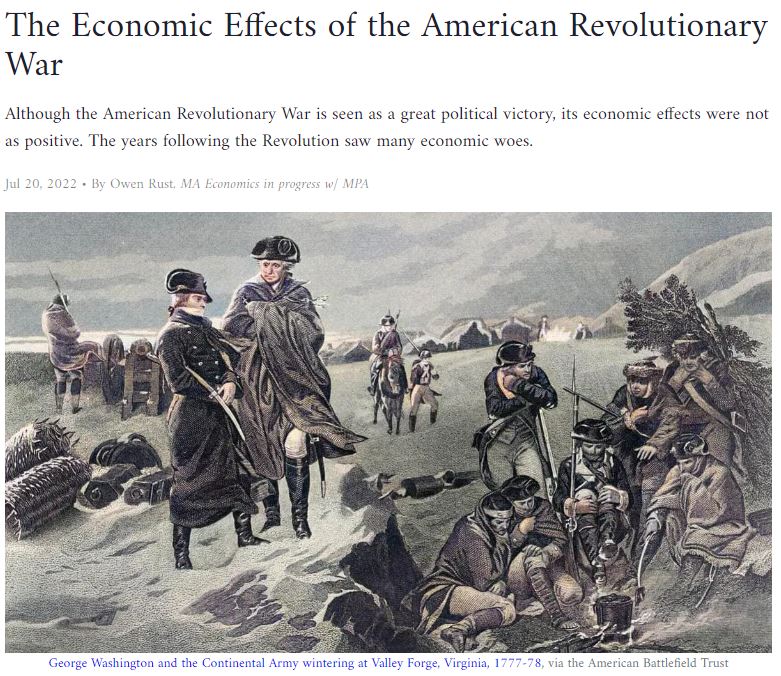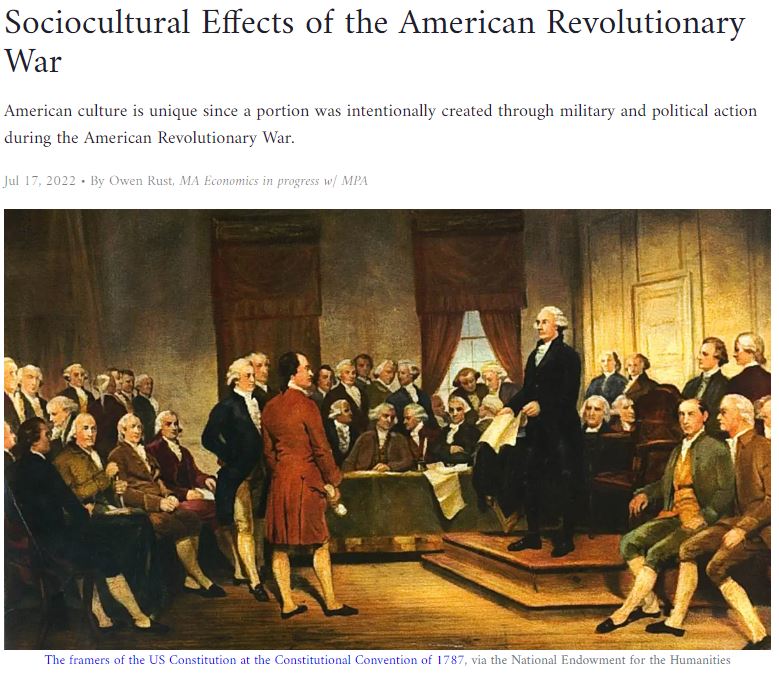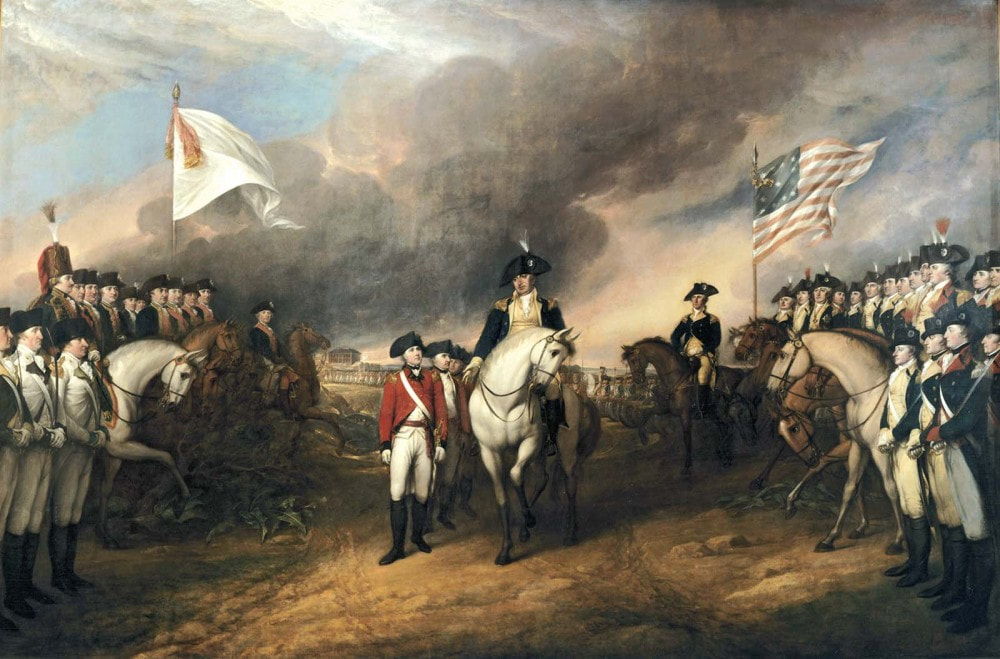Revolution
1750s-1780s
Paul Revere, a member of the Sons of Liberty, was a silversmith who engraved this iconic image of the Boston Massacre.
Contents
Revolution, 1750s-1780s:
Towards Independence
Paul Revere, Landing of the Troops, c. 1770
|
The Bostonian Paying the Excise-Man, 1774 British propaganda print referring to the tarring and feathering a of British tax collector. The men also poured hot tea down his throat. Note the noose hanging on the Liberty Tree and the Stamp Act posted upside-down.
|
|
Towards Independence
|
Towards Independence Quizlet
This iconic image of the Boston Massacre by Paul Revere sparked fury in both Americans and the British by portraying the redcoats as brutal slaughterers and the onlookers as helpless victims. The events of March 5, 1770 did not actually play out as Revere pictured them, yet his intention was not simply to recount the affair. Revere created an effective propaganda piece that lent credence to those demanding that the British authoritarian rule be stopped. Paul Revere (engraver), “The bloody massacre perpetrated in King Street Boston on March 5th 1770 by a party of the 29th Regt.,” 1770.
|
Review:
- What problems were brought about for Britain by its victory in the French and Indian War?
- What methods did colonists use to protest actions by Parliament between 1765 and 1775?
The War of Independence
“The Battle of Lexington,” Published by John H. Daniels & Son, c. 1903
American soldiers came from a variety of backgrounds and had numerous reasons for fighting with the American army. Jean-Baptiste-Antoine DeVerger, a French sublieutenant at the Battle of Yorktown, painted this watercolor soon after that battle and chose to depict four men in men military dress: an African American soldier from the 2nd Rhode Island Regiment, a man in the homespun of the militia, another wearing the common “hunting shirt” of the frontier, and the French soldier on the end. Jean-Baptiste-Antoine DeVerger, “American soldiers at the siege of Yorktown,” 1781
Lord Cornwallis’s surrender signaled the victory of the American revolutionaries over what they considered to be the despotic rule of Britain. This moment would live on in American memory as a pivotal one in the nation’s origin story, prompting the United States government to commission artist John Trumbull to create this painting of the event in 1817. John Trumbull, Surrender of Lord Cornwallis, 1820
Review:
- What were the results of the fighting at Lexington and Concord?
- What did Jefferson mean, and not mean, by the phrase “all men are created equal”?
- Why did many colonists not support independence?
- Why was the Battle of Saratoga a turning point of the War of Independence?
- How did civilians support the war effort in the colonies?
- How did France help the colonies during the American Revolution?
Assignments and Readings
|
|
Your browser does not support viewing this document. Click here to download the document.
| ||||||
American Revolution Newspaper Project
| american_revolution_newspaper_project.pdf | |
| File Size: | 103 kb |
| File Type: | |
Primary Sources
George R. T. Hewes, A retrospect of the Boston Tea-party, 1834
George R.T. Hewes wrote the following reminiscence of the Boston Tea Party almost 61 years after it occurred. It is likely that his memories included more than a few stories he picked up well after 1773. Nonetheless Hews provides a highly detailed account of this important event.
Thomas Paine calls for American independence, 1776
Britons had long understood themselves as the freest people on earth, blessed with a limited monarchy and an enlightened parliament. Paine’s pamphlet offered a very different portrayal of the British government. His criticisms swept across the North American continent and generated widespread support for American independence.
Declaration of Independence, 1776
It is hard to overstate the significance of the Declaration of Independence. Designed as a measured justification for the severing of ties with Britain, the document has also functioned as a transformative piece of political philosophy. Most of the conflicts of American history from this point forward emerged from attempts to understand and implement what it means to believe “all men are created equal.”
Women in South Carolina experience occupation, 1780
The British faced the difficult task of fighting a war without pushing more colonists into the hands of the revolutionaries. As a result, the Revolutionary War included little direct attacks on civilians, but that does not mean that civilians did not suffer. The following account from Eliza Wilkinson describes the stress faced by non-combatants who had to face the British army.
Oneida declaration of neutrality, 1775
The Oneida nation, one of the Six Nations of the Haudenosaunee (Iroquois), issued a formal declaration of neutrality on June 19, 1775 to the governor of Connecticut after the imperial crisis between Great Britain and their North American colonies erupted into violence. This declaration hints at the Oneida conceptions of their own sovereignty among the Six Nations confederacy, the independence of other Indian nations, and how the Oneida understand the conflict as a war “between two brothers.” Samuel Kirkland, a missionary living in Iroquois country, interpreted and transcribed the Oneida’s words and sent them to Governor Jonathan Trumbull of Connecticut.
Boston King recalls fighting for the British and securing his freedom, 1798
Boston King was born into slavery in South Carolina in 1760. He escaped to the British Army during their invasion of South Carolina in 1780. He served as a Loyalist in the British Army, and participated in several important battles. Although captured, and once again enslaved by the Americans, King was able to escape to the British again, who secured his freedom by sending him and other black Loyalists to Canada. Many black colonists sought freedom by joining with the British, with estimates as high as 5,000. King later became a missionary and one of the first black Canadian settlers of Sierra Leone in West Africa.
Abigail and John Adams converse on women’s rights, 1776
The American Revolution invited a reconsideration of all social inequalities. Abigail Adams, in this letter to her husband John Adams, asked her husband to “remember the ladies” in any new laws he may create. In his reply, John Adams treated this sentiment as a joke, demonstrating the limits of revolutionary liberty.
American Revolution cartoon, 1782
Political cartoons provide insight into public opinion and the decisions made by politicians. These cartoons became an important medium for voicing criticism and dissent during the American Revolution. In this 1782 cartoon, the British lion faces a spaniel (Spain), a rooster (France), a rattlesnake (America), and a pug dog (Netherlands). Though the caption predicts Britain’s success, it illustrates that Britain faced challenges –and therefore drains on their military and treasury—from more than just the American rebels.
Drawings of the uniforms of the American Revolution, 1781
American soldiers came from a variety of backgrounds and had numerous reasons for fighting with the American army. Jean-Baptiste-Antoine DeVerger, a French sublieutenant at the Battle of Yorktown, painted this watercolor soon after that battle and chose to depict four men in men military dress: an African American soldier from the 2nd Rhode Island Regiment, a man in the homespun of the militia, another wearing the common “hunting shirt” of the frontier, and the French soldier on the end.
George R.T. Hewes wrote the following reminiscence of the Boston Tea Party almost 61 years after it occurred. It is likely that his memories included more than a few stories he picked up well after 1773. Nonetheless Hews provides a highly detailed account of this important event.
Thomas Paine calls for American independence, 1776
Britons had long understood themselves as the freest people on earth, blessed with a limited monarchy and an enlightened parliament. Paine’s pamphlet offered a very different portrayal of the British government. His criticisms swept across the North American continent and generated widespread support for American independence.
Declaration of Independence, 1776
It is hard to overstate the significance of the Declaration of Independence. Designed as a measured justification for the severing of ties with Britain, the document has also functioned as a transformative piece of political philosophy. Most of the conflicts of American history from this point forward emerged from attempts to understand and implement what it means to believe “all men are created equal.”
Women in South Carolina experience occupation, 1780
The British faced the difficult task of fighting a war without pushing more colonists into the hands of the revolutionaries. As a result, the Revolutionary War included little direct attacks on civilians, but that does not mean that civilians did not suffer. The following account from Eliza Wilkinson describes the stress faced by non-combatants who had to face the British army.
Oneida declaration of neutrality, 1775
The Oneida nation, one of the Six Nations of the Haudenosaunee (Iroquois), issued a formal declaration of neutrality on June 19, 1775 to the governor of Connecticut after the imperial crisis between Great Britain and their North American colonies erupted into violence. This declaration hints at the Oneida conceptions of their own sovereignty among the Six Nations confederacy, the independence of other Indian nations, and how the Oneida understand the conflict as a war “between two brothers.” Samuel Kirkland, a missionary living in Iroquois country, interpreted and transcribed the Oneida’s words and sent them to Governor Jonathan Trumbull of Connecticut.
Boston King recalls fighting for the British and securing his freedom, 1798
Boston King was born into slavery in South Carolina in 1760. He escaped to the British Army during their invasion of South Carolina in 1780. He served as a Loyalist in the British Army, and participated in several important battles. Although captured, and once again enslaved by the Americans, King was able to escape to the British again, who secured his freedom by sending him and other black Loyalists to Canada. Many black colonists sought freedom by joining with the British, with estimates as high as 5,000. King later became a missionary and one of the first black Canadian settlers of Sierra Leone in West Africa.
Abigail and John Adams converse on women’s rights, 1776
The American Revolution invited a reconsideration of all social inequalities. Abigail Adams, in this letter to her husband John Adams, asked her husband to “remember the ladies” in any new laws he may create. In his reply, John Adams treated this sentiment as a joke, demonstrating the limits of revolutionary liberty.
American Revolution cartoon, 1782
Political cartoons provide insight into public opinion and the decisions made by politicians. These cartoons became an important medium for voicing criticism and dissent during the American Revolution. In this 1782 cartoon, the British lion faces a spaniel (Spain), a rooster (France), a rattlesnake (America), and a pug dog (Netherlands). Though the caption predicts Britain’s success, it illustrates that Britain faced challenges –and therefore drains on their military and treasury—from more than just the American rebels.
Drawings of the uniforms of the American Revolution, 1781
American soldiers came from a variety of backgrounds and had numerous reasons for fighting with the American army. Jean-Baptiste-Antoine DeVerger, a French sublieutenant at the Battle of Yorktown, painted this watercolor soon after that battle and chose to depict four men in men military dress: an African American soldier from the 2nd Rhode Island Regiment, a man in the homespun of the militia, another wearing the common “hunting shirt” of the frontier, and the French soldier on the end.
Slideshows
Videos
|
|
|
Digital History Textbook
The American Revolution
This chapter examines the series of events that ruptured relations between Britain and the American colonies, and the long and bitter war that the colonists waged in order to gain independence.
This chapter examines the series of events that ruptured relations between Britain and the American colonies, and the long and bitter war that the colonists waged in order to gain independence.
- Introduction
- Why should we care about the American Revolution?
- Why did the American Revolution take place?
- The Road to Revolution
- The Revolution Begins
- Why did the colonists rebel and the British resist?
- Declaring Independence
- Was the Revolution justified?
- The Revolutionary War
- How were the colonies able to win independence?
- Who were the loyalists?
- How revolutionary was the American Revolution?
- Creating New State Governments
